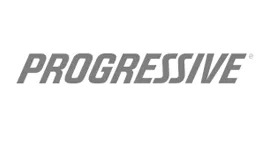With the popularity of Uber, Lyft, and other rideshare platforms, many drivers are earning extra income by giving rides. However, using your personal vehicle for commercial purposes creates important insurance considerations that every rideshare driver should understand.
Amanda Owens
Farhan Husain
Does my personal car insurance cover me while driving for Uber or Lyft?
Most personal auto insurance policies exclude coverage for commercial activities, including rideshare driving. This means your personal policy may not cover accidents that occur while you’re logged into the rideshare app or transporting passengers for payment. You could face significant financial exposure without proper coverage.
Do rideshare companies provide insurance for drivers?
Yes, but coverage varies depending on your activity status:
- App off: Only your personal insurance applies
- App on, waiting for rides: Limited liability coverage from the rideshare company, but minimal coverage for your vehicle
- Ride accepted or passenger in car: Full commercial coverage from the rideshare company, including liability, collision, and comprehensive
However, rideshare company insurance typically has high deductibles (often $1,000-$2,500) and may not cover all scenarios.
Should I tell my insurance company I’m driving for a rideshare service?
Absolutely. Failing to disclose commercial use could result in claim denials or policy cancellation. Many insurers now offer rideshare endorsements or commercial policies specifically designed for drivers who work for these platforms.
What is rideshare insurance coverage?
Rideshare insurance is a special endorsement or policy that fills the coverage gaps between your personal auto insurance and the rideshare company’s commercial policy. This coverage typically activates when you’re logged into the app but haven’t yet accepted a ride – the period when rideshare company coverage is most limited.
How much more will rideshare insurance cost?
Rideshare endorsements typically add $15-50 per month to your existing policy, which is significantly less expensive than a full commercial auto policy. The exact cost depends on your location, driving record, and coverage limits.
Can my insurance company drop me for rideshare driving?
Some insurers may decline to renew your policy if you drive for rideshare companies, while others embrace these drivers with specialized products. It’s crucial to work with an insurance company that explicitly covers rideshare activities.
What happens if I don’t have proper rideshare coverage?
Without appropriate coverage, you could face:
- Claim denials from your personal insurer
- High deductibles from rideshare company insurance
- Personal liability for damages not covered by either policy
- Potential policy cancellation for non-disclosure
For detailed information about commercial auto insurance requirements, visit the Insurance Information Institute. You can also check your state’s insurance department website through the National Association of Insurance Commissioners for local regulations regarding rideshare insurance.
Get some quick free quotes here.
Our Commitment to You: At InsuranceWay, we’re dedicated to providing transparent, unbiased information that helps you make smarter insurance decisions and potentially reduce your costs. While we maintain business relationships with select insurance providers featured on our site, our editorial content remains completely independent. Our team of writers and researchers follows strict guidelines to ensure every article, review, and recommendation serves your best interests—not our business partnerships.





